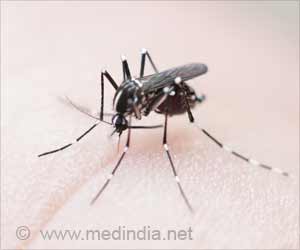Dengue and Chikungunya infected patients should not donate blood for 6-12 months. These infections are transmissible through blood.

‘Since dengue and chikungunya viruses are identified as transfusion-transmissible infections, abstaining oneself from donating blood for 6-12 months after complete recovery from the illness is vital.’





Travel is a risk factor for the spread of any infectious disease. With increasing travel, there is a chance of the disease appearing in another part of the country or the globe, where it did not occur previously. Consequently, the prevalence of dengue has increased several-folds across the world. The dengue virus was recognized as a transfusion-transmitted pathogen in 2008. Chikungunya virus is also a transfusion-transmissible infection, as per the World Health Organization (WHO). Since then, there has been concern about the risk of transmission of dengue via blood transfusion. Dengue virus becomes a blood-borne pathogen during the period of viremia, which coincides with the febrile period.
In 2009, the American Association of Blood Banks placed dengue virus in the highest category of emerging infectious agents for their potential impact on transfusion recipient safety for the next years in North America. Although rare, cases of transfusion-transmitted dengue fever have been reported. So far, five cases of transfusion-transmitted dengue, including one case of dengue hemorrhagic fever, have been formerly documented.
Blood donors have been recognized as likely vehicles for the transmission of the infection in endemic areas. Dengue has become endemic in India, particularly in Delhi, where it has become a perennial infection.
In a study conducted to determine the prevalence of dengue virus infection in blood donors in a tertiary care center, high seroprevalence (58%) of dengue infection in healthy asymptomatic blood donors was found; but, no active viremia was detected Seroprevalence is still a risk to blood safety and is a potential source for transfusion-transmitted infections.
Advertisement
In its 2012 Guidelines on Assessing Donor Suitability for Blood Donation, the WHO also recommends that individuals with a history of dengue or chikungunya virus in endemic areas should defer for six months following full recovery from infection. It further says that individuals who have visited an area endemic for dengue or chikungunya should defer for 28 days following return. And, those who have suffered a febrile illness during or following a return from an endemic region should defer for six months following full recovery from infection.
Advertisement
Hence, a medical history becomes very important when assessing the eligibility of a prospective blood donor. Always ask the history of dengue/Chikungunya, history of blood/blood product transfusion and history of any viral fever.
Dengue patients should defer blood donation for up to 6-12 months post-infection. But, a question then arises. Should screening for dengue be mandatory before blood transfusion as is for hepatitis B virus, hepatitis C virus, HIV, syphilis, malaria as many dengue patients go undetected in acute febrile illness?
Source-Medindia














